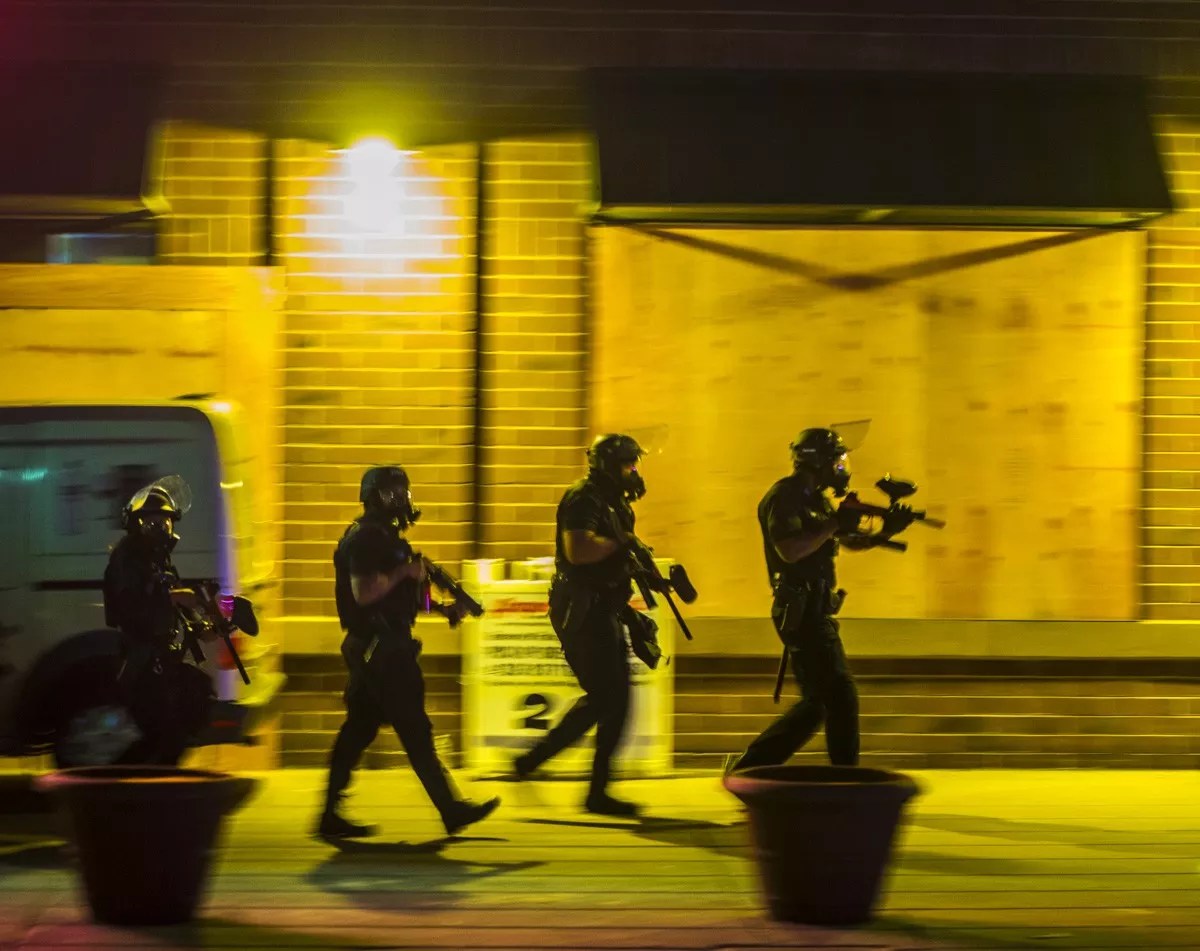
Evan Sem

Audio By Carbonatix
Against the backdrop of the George Floyd protests, many activists and community members are calling on Denver to “defund the police.” Among others, Denver City Council members Candi CdeBaca and Stacie Gilmore are advocating for moving some of the Denver Police Department’s budget into social services.
For some, reducing law enforcement expenditure is a scary and ill-advised change to make in the heat of the moment. For others, a police budget reduction has been a long time coming, and the belt-tightening caused by the COVID-19 recession is the perfect time to rethink our budget priorities.
What can Denver’s recent history of police spending and crime reveal about our current moment and where to go next? I looked at budget information, crime data and recent academic research to find out.
In 1992, when Denver experienced 11 violent crimes per 1,000 people, the city spent $164 million on police, adjusted for inflation. In 2017 (the latest year with comparable budget data), the city’s violent crime was down 40 percent to 6 per 1,000, but the police budget had ballooned nearly 50 percent to $241 million. That amounted to $354 per resident that year.
During that time, the city cut its health-care and hospital spending by 74 percent and cut its public-assistance budget by 43 percent. According to published research, cities that reduced their social service spending were more likely to subsequently increase their police budget.
Denver’s spending on police was growing at the same time the need for police — crime — was diminishing. It is this divergence that is leading some activists to demand that police spending be brought back in line with the lower-crime realities of the current moment.
But wait: Wasn’t it the increase in spending that caused the diminished crime rate? We shouldn’t stop taking the medicine just because we’re feeling better, right?
Determining what causes crime fluctuations is extremely difficult, but it is unlikely that policing played a large role. Denver’s crime rate decreased the most in the years the police budget was growing the slowest, and crime declined nationally — indeed, internationally — during this time, in cities that spent a lot on police and in cities that didn’t.
There is evidence that investigative actions like solving murders reduces crime, but a recent report by the National Academies of Sciences found misdemeanor arrests, which account for 80 percent of Denver Police Department arrests, “generate small to null impacts on crime.”
Though research suggests that the crime-reduction effects of intense policing are likely minimal, the human consequences are definitely severe. George Floyd died in custody after the Minneapolis police arrested him for allegedly using a counterfeit $20 bill. Floyd’s death demonstrates one tragic policing outcome, and even non-lethal police interactions can be harmful.
A single arrest can hurt one’s employment, school performance, finances, mental health and likelihood of voting. Intensive law enforcement also diminishes police legitimacy, making it harder for police to solve violent crimes.
The consequences of aggressive policing fall disproportionately on black Denverites. While they are 9 percent of our population, black people were 25 percent of those arrested for misdemeanors by the DPD in 2018. Many studies have shown arrest disparities nationally cannot be explained by differential offending rates.
Increasingly, non-police community organizations are working to reduce crime. Eugene-based CAHOOTS deploys crisis-intervention specialists trained in de-escalation and counseling to respond to crises before police. In cities like Omaha, Durham and Kansas City, CURE Violence uses community members mediating between feuding youth to interrupt retaliatory violence. Research shows that cities with more anti-violence nonprofit organizations experience less crime than cities with fewer, even controlling for other differences between them.
Whether it was police, community groups or a hundred different things that caused the fortuitous crime decline, now is the time to cash in the public-safety dividend we have accrued. Like a stock that pays a return after growth, our public-safety account is ready for a withdrawal.
We can invest former police dollars in the kind of community groups that reduce crime without devastating communities. We can invest in the schools, jobs, rape-crisis centers and housing that address the root causes of crime, like poverty.
Interventions from improved maternal and infant health care to Head Start preschool create large and lasting reductions in crime. When people are diverted from arrest and into treatment, crime declines.
These community responses show that if crime were to increase in the future, we now have an array of methods to respond to crime that can supplement — and in some cases replace — police.
What different activists mean by “defund the police” varies. While some are calling for the DPD’s abolition now, a reduction in the 2021 budget is more likely. Those budget negotiations would happen in the fall.
Recent history and evidence suggest that Denver’s police budget has outgrown its need, and reinvesting those dollars elsewhere could fruitfully reduce crime and improve communities.
Brenden Beck, Ph.D., is an assistant professor of sociology at University of Colorado Denver. Follow him on Twitter: @brendenbeck.
Westword occasionally publishes op-eds on issues of interest to the Denver community. Have one you’d like to submit? Send it to editorial@westword.com, where you can also comment on this piece.